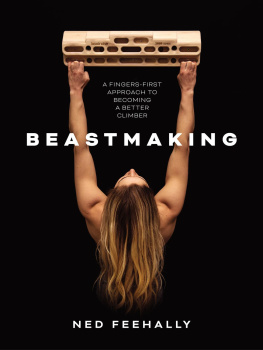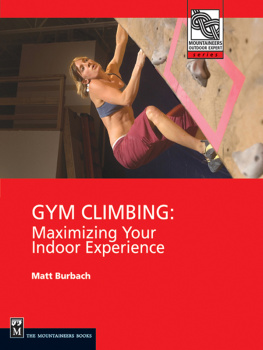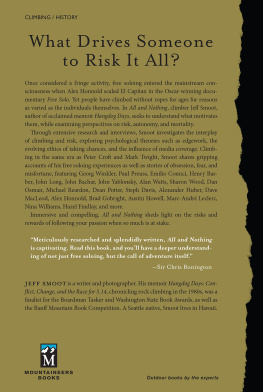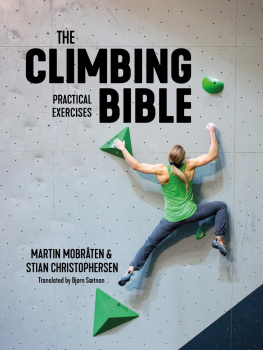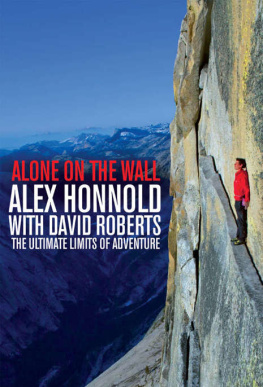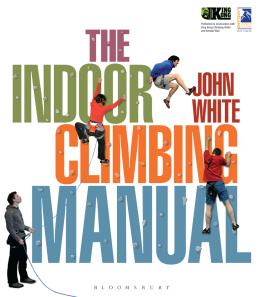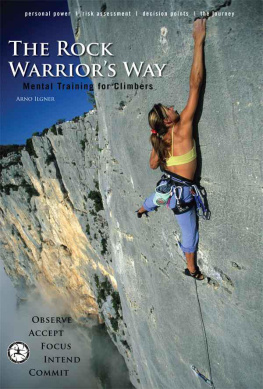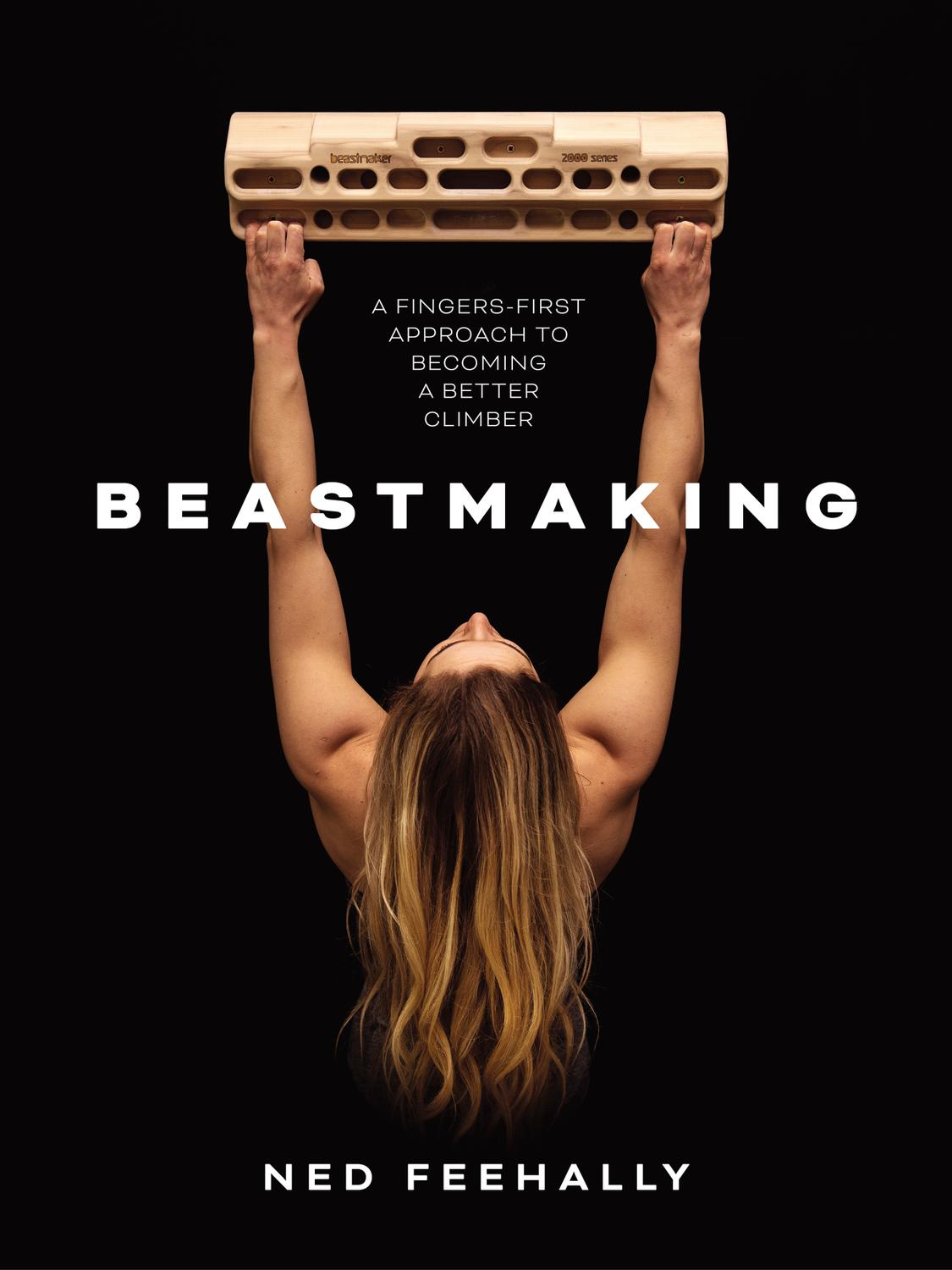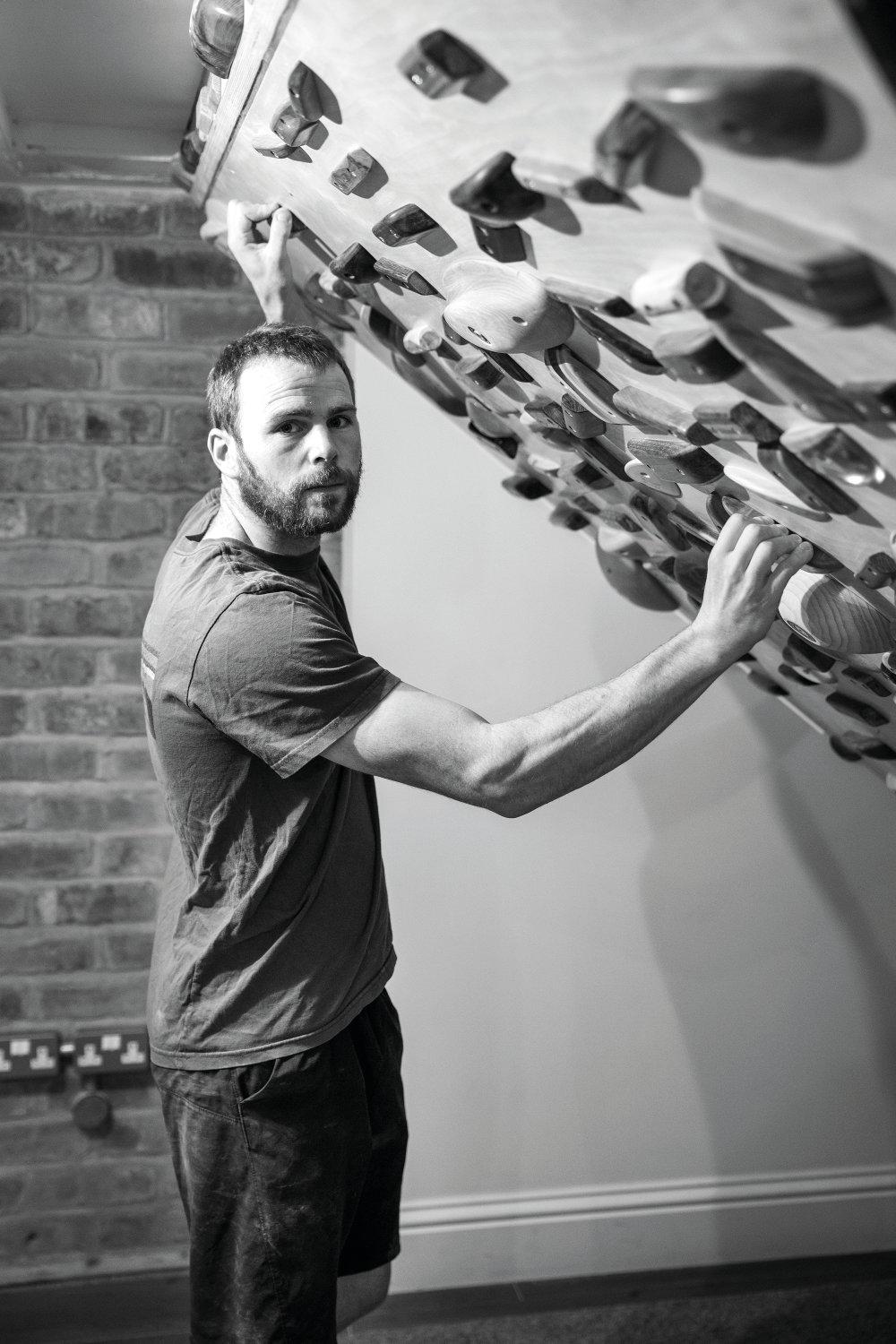
Nick Brown
Ned Feehally is one of the worlds top climbers and co-founder of Beastmaker, which manufactures wooden fingerboards and climbing training apparatus. He has been climbing for over twenty years, is a three-time British bouldering champion, has competed in world cup finals, and has been at the heart of pushing climbing standards in the UK over the last ten years. He is obsessive about data-led training but passionate about communicating what works and what doesnt to regular climbers, which is what led him to write Beastmaking. He has climbed multiple Font 8cs, and in 2017 he climbed Trust Issues in Rocklands on his first attempt, joining a very small group of climbers to have flashed Font 8b+. In 2020 he made the first ascent of The Boss, one of the hardest problems on gritstone. He lives in Sheffield with his partner, Shauna Coxsey.
BEASTMAKING
NED FEEHALLY
First published in 2021 by Vertebrate Publishing. This digital edition first published in 2021 by Vertebrate Publishing.
Vertebrate Publishing
Omega Court, 352 Cemetery Road, Sheffield S11 8FT, United Kingdom.
www.v-publishing.co.uk
Copyright 2021 Ned Feehally and Vertebrate Publishing Ltd.
Foreword copyright 2021 Shauna Coxsey.
Ned Feehally has asserted his rights under the Copyright, Designs and Patents Act 1988 to be identified as author of this work.
A CIP catalogue record for this book is available from the British Library.
ISBN 9781839810091 (Paperback)
ISBN 9781839810107 (Ebook)
All rights reserved. No part of this work covered by the copyright herein may be reproduced or used in any form or by any means graphic, electronic, or mechanised, including photocopying, recording, taping, or information storage and retrieval systems without the written permission of the publisher.
Every effort has been made to obtain the necessary permissions with reference to copyright material, both illustrative and quoted. We apologise for any omissions in this respect and will be pleased to make the appropriate acknowledgements in any future edition.
Front cover Nick Brown.
Back cover: The author on Dandelion Mind, Badger Cove, England. Martin Smith. Inside front cover Nick Brown.
Inside back cover: The author on the first ascent of Cest un Alien, Rocher Cailleau, Fontainebleau, France. John Coefield.
Photography by Nick Brown unless otherwise credited.
Anatomy illustrations by Ilija Visnjic.
Design and production by Jane Beagley, Vertebrate Publishing.
Every effort has been made to achieve accuracy of the information in this guidebook. The authors, publishers and copyright owners can take no responsibility for: loss or injury (including fatal) to persons; loss or damage to property or equipment; trespass, irresponsible behaviour or any other mishap that may be suffered as a result of following the advice offered in this guidebook.
Climbing is an activity that carries a risk of personal injury or death. Participants must be aware of and accept that these risks are present and they should be responsible for their own actions and involvement. Nobody involved in the writing and production of this guidebook accepts any responsibility for any errors that it may contain, or are they liable for any injuries or damage that may arise from its use. All climbing is inherently dangerous and the fact that individual descriptions in this volume do not point out such dangers does not mean that they do not exist. Take care.
CONTENTS
vi
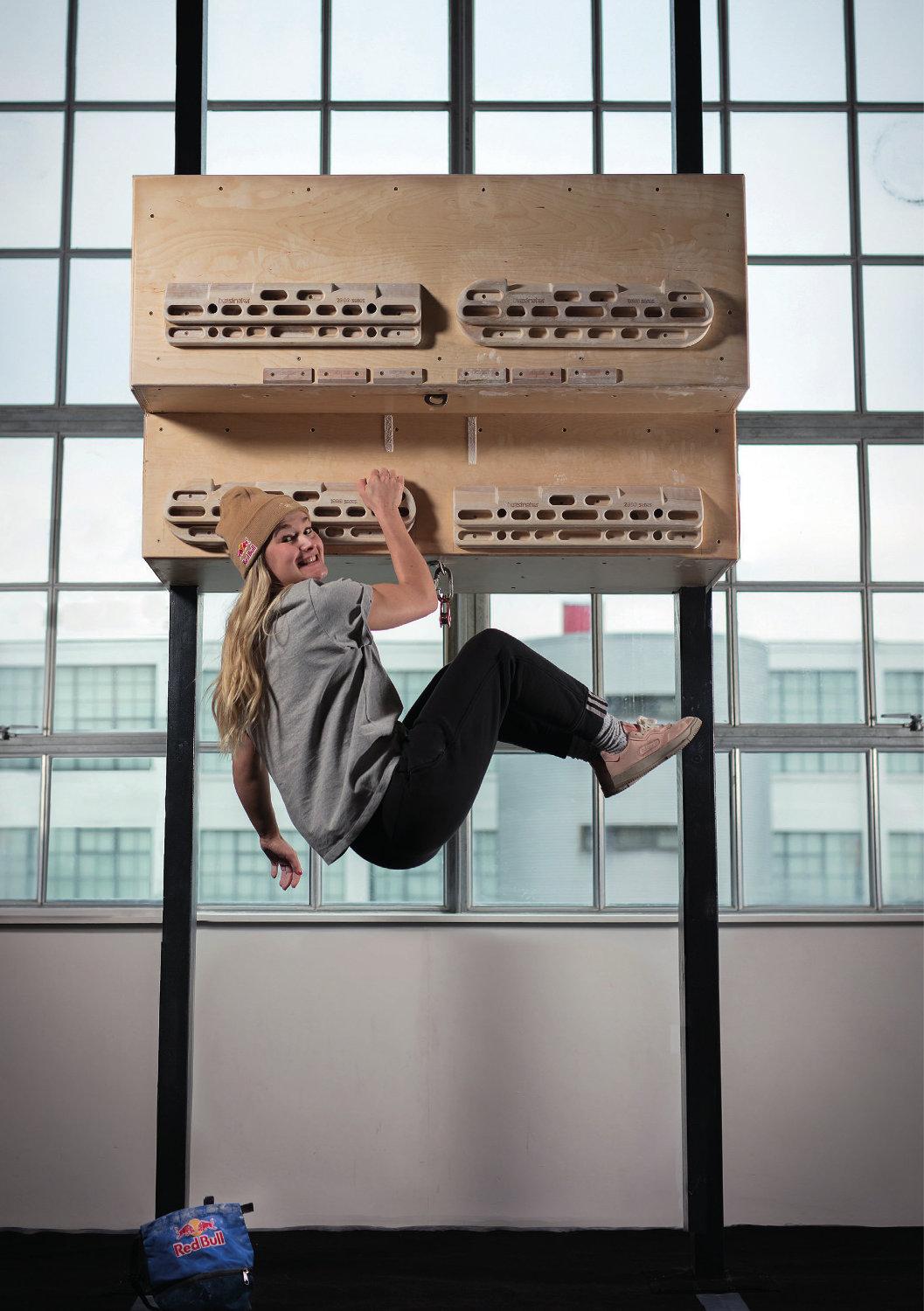
SHAUNA COXSEY AT THE CLIMBING HANGAR MATCHWORKS, LIVERPOOL, ENGLAND. RED BULL CONTENT POOL
The exponential rate at which our sport has grown is hard to comprehend. The past decade alone has seen grade boundaries shattered, the emergence of countless prodigies, the birth of dedicated elite training facilities and the introduction of climbing as an Olympic sport. Most outrageously, though, climbing has become cool I mean, no one saw that coming!
The growth of climbing has seen many people look to the professionals for answers to the question of how to get better. Who doesnt want to know what the secret is? So, where are the famous coaches, who is doing all the research and where can you buy the best training programme ?
However, our sport is about so much more than spreadsheets and numbers. It transcends the boundaries between traditional sport and action sport. Its a sport that at any level combines performance and style while requiring composure and resilience.
It seems as though we are at a point where the science and the research are trying to catch up, with a multitude of studies and data trying to categorise inexplicable levels of ability that simply do not come down to basic levels of strength or endurance. Climbing is as much an art form as it is a matter of physical ability.
That being said, most of us can certainly benefit from more understanding of how to train and what to train in order to become stronger. The getting better bit is a little more complicated.
Ned has spent the last 20 years exploring his fascination with the intricate details of what makes elite climbers good and how they get to the top of the sport. His obsessive tendencies have ensured hes not only tried and tested pretty much everything hes learnt, but hes also (very neatly) documented everything. Ned is practical; hes pragmatic and is a self-proclaimed geek when it comes to training.
Read this book with the desire to improve, the dedication to action what you learn and the belief that you can achieve your goals.
Shauna Coxsey
viii
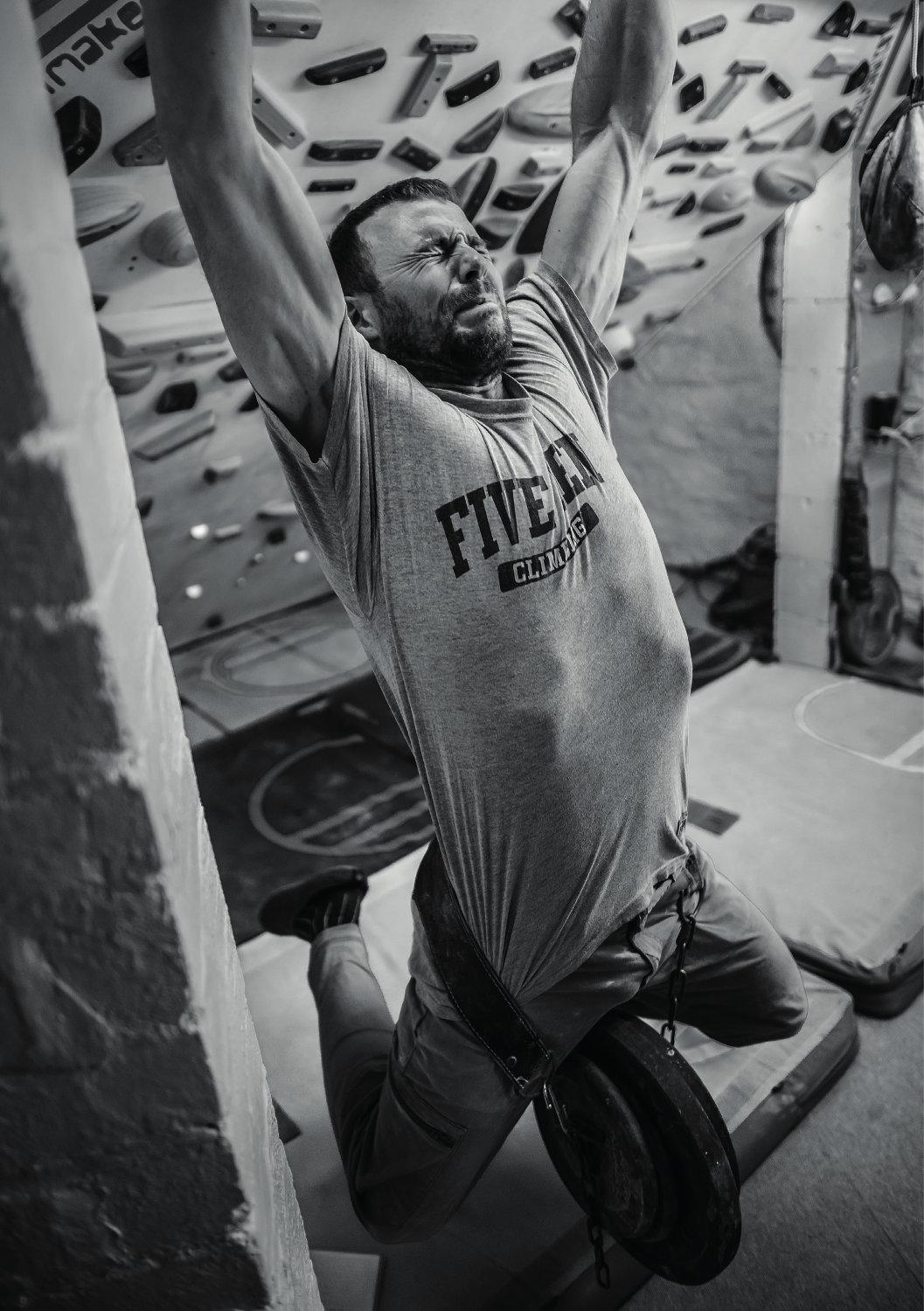
ALEX MEGOS
If youve picked up this book you are probably interested in improving your climbing, and youre willing to put some effort into doing just that.
Great, youre in the right place.
It seems as if climbers are always looking for a shortcut to improving. They might pay a coach in the hope that this will automatically make them better, or they might buy an online training programme which has convinced them that it will add a few grades to their climbing. Similarly, they might be happy to buy a fingerboard and maybe even put it up in their house before realising that thinking about and actually training on it takes some effort, and the benefits of simply owning a fingerboard are fairly limited.
However, some people are really keen to improve, but struggle to know exactly how they should go about it, and even where they should start.
The idea of this book is to provide you with enough information so that you can work out what you need to train, and to help you to train it, but without things being data and jargon dense and too much of a chore to trawl through. I hope that it will give you some new ideas, fresh knowledge and inspiration for your training.
But, just so we are clear from the beginning: there is no shortcut to improving! Youll not find a magic formula in this book. It simply doesnt exist.
While there is an increasing amount of science and data-driven training information out there, climbing is a relatively young sport. The amount of scientific studies into climbing is still very limited. It feels like were at the stage where the science thats getting done is simply backing up what we have been crowdsourcing in the climbing scene for the past 40 years!

